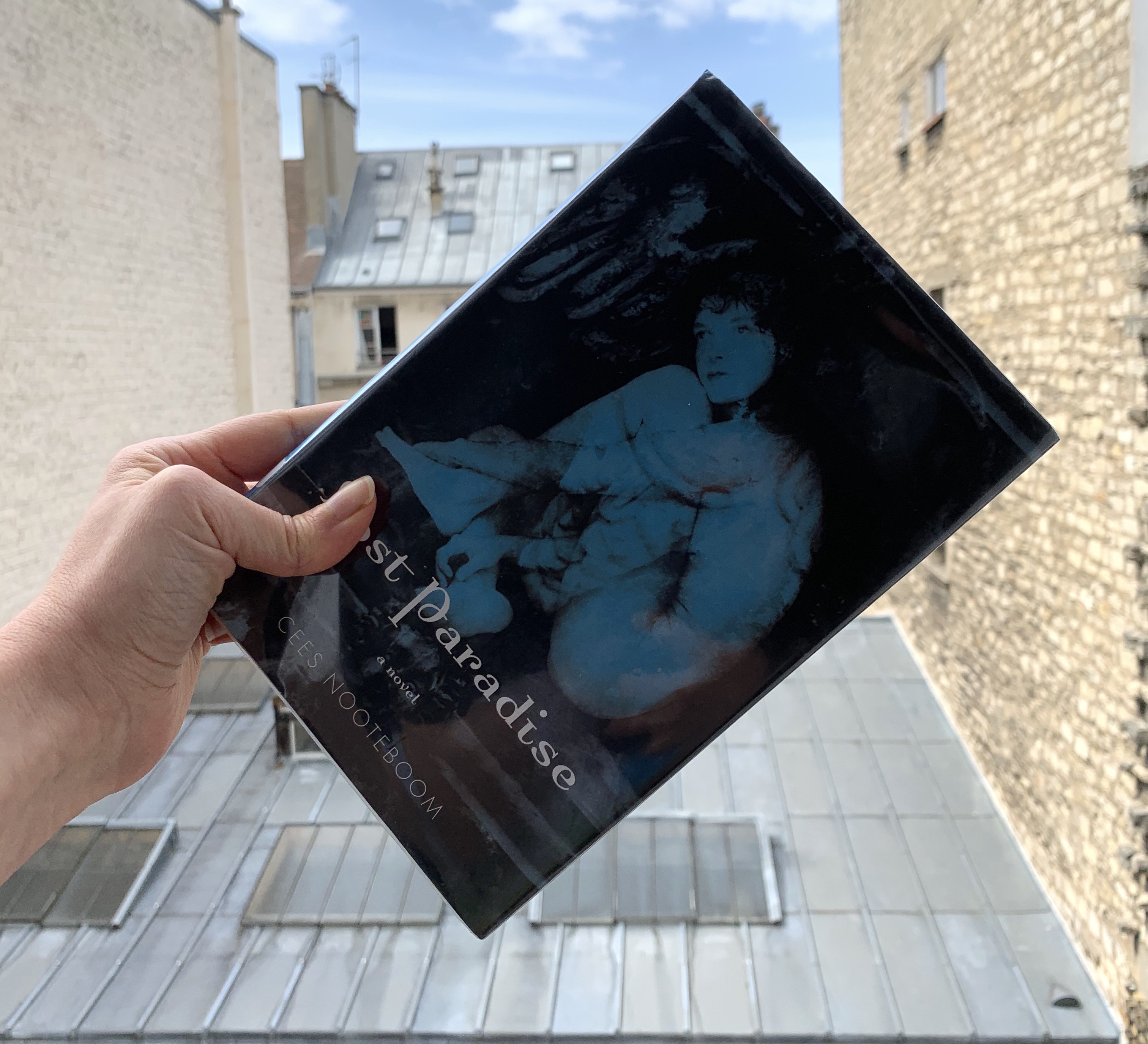Whenever I visit a new place, I try to pick up a book set there. And while Amsterdam isn’t new, to me, and while Cees Nooteboom didn’t actually write about Amsterdam in Lost Paradise, and while it’s actually been a month since I was in Amsterdam, I recently read this book.
***
Technically, I read some, or all, or most, or a bit of this book years ago, when I was a student at the American University of Paris, taking a course I hated that I was nearly never fully awake for. It was a requirement for my Communications major, and my teacher had a heavy accent, and the entire class was about how angels communicate, which despite having spent the first ten years of my schooling in Catholic establishments struck me as frankly ridiculous.
The realization that I had read part of this story in the past came over me slowly, rather than in that stark, startling way that I usually remember books I’ve read. It did not strike me when I found it in the library, nor as I read the first fifty pages. Rather, slowly but surely, one element of the book slipped into my consciousness and lodged itself there, and over time, I realized that I had, indeed, read some or all or part of it, and that I did not know how it was going to end (which, given the book’s obsession with endings, seemed particularly appropriate).
***
I never read the back jacket of a book before I read it. It’s a habit that started as a sort of game, to keep me from making snap judgments before I’d actually delved into the book itself. Now, I avoid it as a rule; I get upset when someone tells me, before I’ve started reading, what a book is going to be about.
And yet I’m going to tell you – a little bit – what this book is about – so if you’re like me, I’m sorry.
This is a book of two opposing narratives, hemmed in by a prologue and an epilogue framed as autobiography but that may well be autofiction. The man in one of the two opposing narratives is clearly a thinly veiled substitute for the author, who is divorced and pudgy and middle aged and is therefore supposed to appeal to the (divorced, pudgy, middle aged) reader. There is a woman – young and Brazilian and beautiful – who wants nothing to do with him, and that captivates him and fascinates him. He takes advantage of her position of weakness a bit more than is comfortable, in the modern age. This makes me uncomfortable: that this has become the lens through which I read, that so much of literature calls this to mind, that it taints so many of the pages I stumble onto.
***
The woman is dressed as an angel when they meet.
***
There is a third narrator, who appears but briefly. This narrator may be the author, or god, or, indeed, an angel. In the briefest of moments, this narrator foists their fates together, as though confirming that destiny does, indeed, govern all. Everyone else disappears.
I liked the ending.
